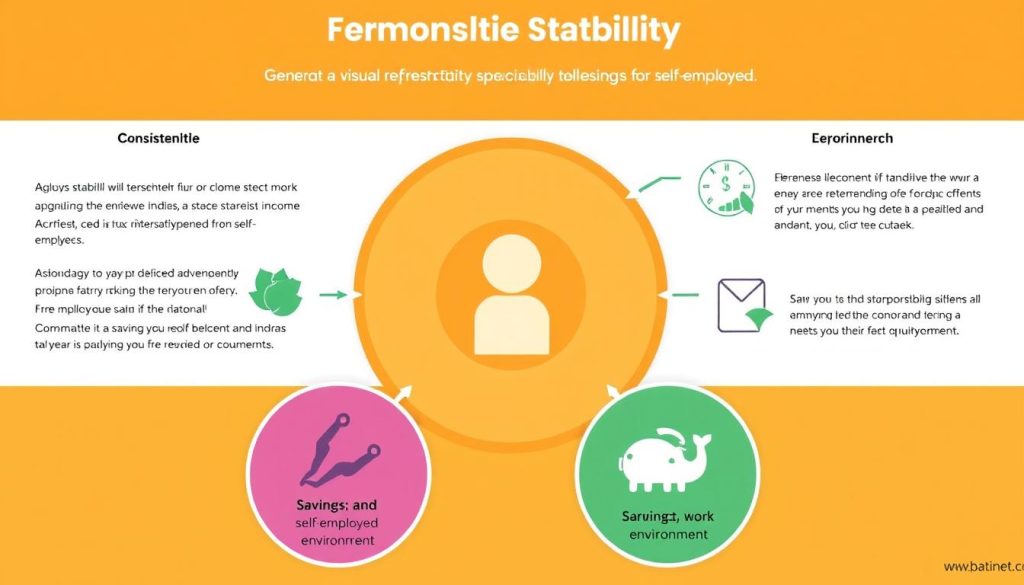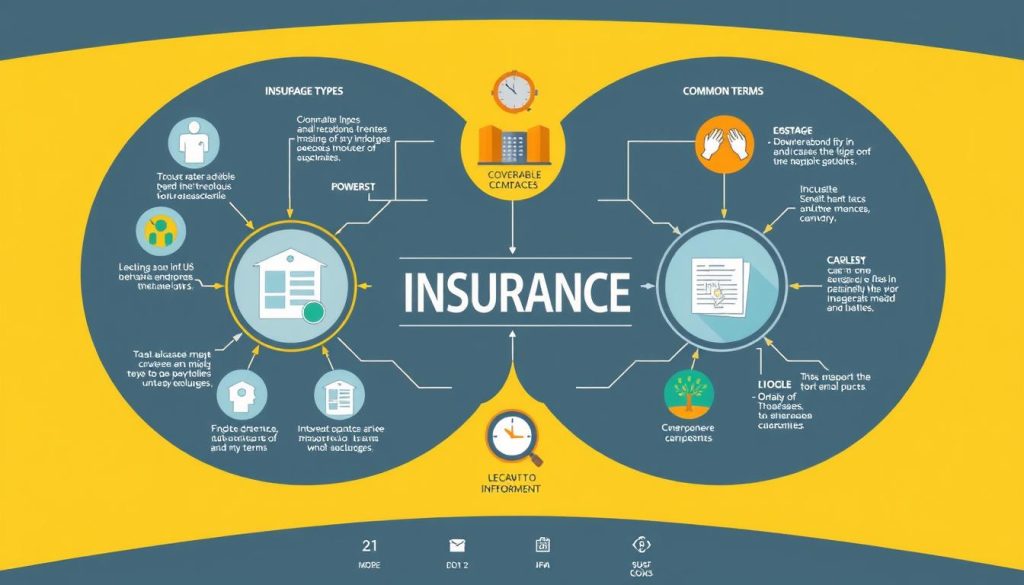As a self-employed individual in France, navigating the complexities of your business can be both challenging and rewarding. You have taken the first step by deciding to take control of your career, but ensuring stability and security is crucial for long-term success.
Understanding the various legal structures available, such as micro-entreprise, EURL, and SASU, is essential for managing your business income and obligations effectively. It is equally important to be aware of your responsibilities regarding social security contributions, taxation, and healthcare coverage to maintain a stable business.
Our comprehensive guide is designed to provide you with the necessary information and support to work with confidence. Whether you are just starting your journey or looking to strengthen your existing business, we offer practical advice and expert insights to help you achieve your goals.
Table of Contents
Key Takeaways
- Understand the legal structures available for self-employed individuals in France.
- Manage your business income and social security contributions effectively.
- Ensure you have the right healthcare coverage for your needs.
- Navigate taxation obligations to minimize your financial burden.
- Access practical support and expert advice for your self-employed journey.
Understanding Self-Employment in France
The landscape of work in France is changing, with self-employment becoming an increasingly popular choice. As the French economy evolves, more individuals are opting for the autonomy that comes with being self-employed.
Definition and Statistics
Self-employment in France refers to individuals who work independently, managing their own businesses. According to the National Institute of Economic Statistics and Studies (l’Insee), France had around 3 million self-employed people in 2019. In 2021, nearly 13% of the workforce was self-employed, with a higher share for men (15.6%) than women (9.5%).
- Autonomy: Self-employment offers the freedom to set one’s own schedule and choose clients.
- Income Variability: Self-employed individuals face irregular income streams, requiring careful financial planning.
Self-Employment vs. Traditional Employment
When comparing self-employment to traditional employment, several key differences emerge. Unlike employees who receive a regular salary and benefits, self-employed individuals must arrange their own security and benefits.
- Traditional employment provides extensive social security benefits and protections.
- Self-employed individuals are responsible for their own tax declarations and social security contributions.
- While traditional employment offers paid vacation time, self-employed workers must factor this into their business planning and income projections.
Managing work and income effectively is crucial for the stability and security of self-employed individuals in France.
Legal Structures for the Self-Employed in France
France offers a variety of legal structures for self-employed individuals, catering to different business needs and goals. Choosing the right legal structure is crucial as it impacts your income, social security contributions, and overall work environment.
Micro-Entreprise/Auto-Entrepreneur
The Micro-Entreprise or Auto-Entrepreneur status is a popular choice among self-employed individuals in France due to its simplicity and favorable conditions. It is designed for small-scale businesses with limited annual turnover. Under this regime, social security contributions and taxes are simplified, making it easier for entrepreneurs to manage their administrative tasks. This status is ideal for those who are just starting out or have a small client base.
EURL (Entreprise Unipersonnelle à Responsabilité Limitée)
EURL is a limited liability company suitable for self-employed individuals who want to separate their personal and professional assets. It offers more flexibility in terms of tax options compared to the Micro-Entreprise status. The EURL status is beneficial for businesses that anticipate significant growth or involve substantial financial risks. It requires more formalities than the Micro-Entreprise status but provides greater legal protection.
SASU (Société par Actions Simplifiée Unipersonnelle)
SASU is a simplified joint-stock company that offers a high degree of flexibility in its operation and management. It is suitable for self-employed professionals who wish to have a more complex business structure, possibly with the intention of expanding their business or involving investors. SASU provides the advantage of limited liability and can be more attractive to potential clients or partners due to its corporate status.
Portage Salarial (Umbrella Companies)
Portage salarial is a unique system where self-employed individuals sign a contract with an umbrella company, becoming their employee. This arrangement allows professionals to focus on their work while the umbrella company handles administrative tasks, invoicing, and legal compliance. For their services, the umbrella company charges a fee, typically between 7-10% of the monthly invoices. This option is particularly appealing to consultants and freelance professionals who value the benefits of being an employee, such as access to social protection and employee benefits, while maintaining the flexibility of self-employment.
Registration Process for Self-Employed Workers
The registration process is a critical step for self-employed individuals to establish their business in France. It involves several key steps that ensure compliance with French regulations.
Required Documentation
To register, self-employed workers must gather necessary documents. While the specific requirements can vary depending on the nature of the activity, typically, identification documents, proof of address, and details about the business activity are required.
Registration with Urssaf
Registration with Urssaf is a crucial step. Urssaf handles social security contributions for self-employed workers. The registration process involves submitting an application and awaiting confirmation.
Business Registration Numbers (SIRET and SIREN)
After Urssaf registration, self-employed workers receive two essential numbers: the SIREN (9 digits) and the SIRET (14 digits). These numbers are issued by INSEE within a month.
| Registration Number | Description | Digits |
|---|---|---|
| SIREN | Identifies the business entity | 9 |
| SIRET | Identifies the specific business location | 14 |
As a self-employed worker, it’s essential to include these numbers on all professional documents. Until received, invoices can indicate « SIRET en cours d’attribution. »
Visa Requirements for Foreign Self-Employed Professionals

The process of obtaining a visa as a foreign self-employed individual in France involves several key steps and requirements. If you don’t yet live in France or are in the country on a salaried worker or student visa, you will need to request a residence card for freelancers (carte de séjour entrepreneur/profession libérale). This temporary visa allows you to create your freelance business and work in France for more than three months.
EU Nationals
As an EU national, the process is relatively straightforward due to the freedom of movement within the EU. However, you may still need to register with the relevant authorities and obtain a residence permit if you plan to stay for more than three months. It’s essential to check with the local prefecture or town hall for specific requirements.
Non-EU Nationals
For non-EU nationals, the entrepreneur/professional visa (carte de séjour entrepreneur/profession libérale) is specifically designed for those wishing to establish a self-employed business in France. Applicants must demonstrate the economic viability of their business project through either a proven track record or a comprehensive five-year business plan.
Entrepreneur/Professional Visa Application Process
The application process requires documentation of financial resources sufficient to support yourself while establishing your business, typically equivalent to the French minimum wage (SMIC). Visa applications are evaluated based on the potential economic benefit to France, the applicant’s professional qualifications, and the feasibility of the business plan.
| Requirement | Description | Documentation Needed |
|---|---|---|
| Economic Viability | Proven track record or five-year business plan | Business plan, financial statements |
| Financial Resources | Sufficient funds to support oneself | Bank statements, proof of income |
| Professional Qualifications | Relevant qualifications and experience | Diplomas, certificates, CV |
Once approved, the initial visa is typically valid for one year and can be renewed if the business shows positive development and the self-employed worker complies with all legal obligations.
Financial Stability for the Self-Employed

As a self-employed professional, managing your finances effectively is crucial for long-term stability. Financial stability allows you to navigate the uncertainties of your business income and maintain a consistent lifestyle.
Setting Up a Business Budget
Creating a business budget is the first step towards financial stability. Start by tracking your income and expenses over a year to understand your financial patterns. This will help you identify areas where you can cut costs and allocate resources more efficiently.
Allocate your income into categories, ensuring you have a clear picture of your monthly outlays. This budget will serve as a roadmap for managing your finances during both high and low months.
Emergency Fund Strategies
An emergency fund is a critical component of financial stability. It acts as a buffer during periods of low income or unexpected expenses. Aim to save an amount equivalent to 3-6 months of living expenses.
To build this fund, start by setting aside a portion of your income each month. Even small, consistent contributions can grow over time, providing a safety net for your business.
Managing Irregular Income
One of the challenges of being self-employed is managing irregular income. To mitigate this, consider implementing an « income smoothing » system. Calculate your average monthly income based on the previous year and pay yourself a consistent salary.
During high-income months, save the surplus to cover expenses during lower-income periods. This strategy helps create a more stable financial situation.
Taxation for Self-Employed Professionals in France
France’s tax system presents both challenges and opportunities for self-employed professionals who understand how to navigate it effectively. As a self-employed individual in France, it is essential to comprehend your tax obligations to maintain financial stability and ensure compliance with French tax laws.
Income Tax Obligations
Self-employed professionals in France are subject to income tax on their earnings. The French income tax system is progressive, meaning that the tax rate increases with the amount of income earned. It is crucial to understand your income tax obligations, including the need to file an annual tax return. The income tax payment amount is calculated based on the previous year’s income.
VAT (TVA) Requirements
Value-added tax (VAT), or « TVA » in French, is a consumption tax that is levied on the value added to goods and services. Self-employed professionals who exceed certain turnover thresholds are required to register for VAT. The standard VAT rate in France is 20%, although there are reduced rates of 10% and 5.5% for certain goods and services. Understanding your VAT obligations is vital to avoid any potential penalties.
Business Expense Deductions
While micro-entrepreneurs in France are not allowed to deduct business expenses from their taxable income, other self-employed individuals can deduct legitimate business expenses to reduce their taxable income. It is essential to maintain accurate records of business expenses throughout the year to ensure you can claim the deductions you are entitled to.
Tax Payment Schedule
Self-employed professionals in France typically make tax payments according to one of two schedules: monthly or quarterly payments under the versement libératoire system, or three annual installments under the standard system. The tax payment schedule can be adjusted if your income changes significantly during the year. It is crucial to manage your tax payments effectively to avoid any tax payment issues.
By understanding and managing your tax obligations effectively, you can minimize your tax liability and maintain a stable financial position as a self-employed professional in France.
Social Security Contributions for the Self-Employed

Self-employed workers in France must manage their social security contributions carefully to ensure compliance and financial stability. The French social security system is comprehensive, providing various benefits, including healthcare, retirement pensions, and family allowances.
Understanding the French Social Security System
The French social security system is designed to provide a safety net for all workers, including the self-employed. It covers various risks such as illness, maternity, disability, and old age. As a self-employed individual, it’s essential to understand how this system applies to you and the contributions you’re required to make.
Contribution Rates and Calculations
Social security contributions for the self-employed are calculated based on your business income. The contribution rate varies depending on the type of contribution and your income level. For instance, contributions for health insurance, retirement pensions, and family benefits are mandatory. The rates are as follows:
- Health insurance: A percentage of your income, with a cap.
- Retirement pension: Contributions are made to the relevant pension scheme.
- Family benefits: Contributions are required to access family benefits.
The total contribution rate can be significant, but it’s a crucial investment in your financial security and that of your family.
Payment Options and Schedule
Self-employed individuals can choose from various payment options for their social security contributions. Payments can typically be made monthly or quarterly, depending on your preference and cash flow. It’s essential to adhere to the payment schedule to avoid penalties and ensure continuous coverage.
Exemptions and Reductions (ACRE)
New entrepreneurs may be eligible for the ACRE (Aide à la Création ou à la Reprise d’une Entreprise) program, which offers significant reductions in social security contributions during the first year of business. To qualify, you must not have benefited from this scheme for another business within the last three years. Eligible self-employed workers can benefit from a total exemption from certain contributions if their annual income remains below €34,776.
By understanding and leveraging these exemptions, self-employed individuals can better manage their financial obligations and focus on growing their business.
Healthcare Coverage for Self-Employed Workers
As a self-employed individual in France, understanding your healthcare coverage options is crucial for maintaining financial stability. The French healthcare system provides various forms of coverage, including basic healthcare coverage and supplementary health insurance options.

Basic Healthcare Coverage (Protection Universelle Maladie)
The French healthcare system offers basic coverage through the Protection Universelle Maladie (PUMA), which ensures that all residents, including self-employed individuals, have access to healthcare services. This basic coverage includes a wide range of medical services and treatments.
To be eligible for PUMA, you must reside in France and have a regular income, which includes income from self-employment. The coverage is designed to reduce healthcare costs, making it more manageable for self-employed workers to maintain their health.
Supplementary Health Insurance Options
While PUMA provides a foundation, supplementary health insurance (mutuelle) can help cover additional costs not included in the basic coverage, such as dental care, optical services, and other expenses. Self-employed individuals can choose from various supplementary insurance plans to suit their needs.
These supplementary plans can provide additional benefits, ensuring that you have comprehensive healthcare coverage. It’s essential to compare different plans to find one that aligns with your health needs and budget.
Daily Medical Leave Benefits
Self-employed workers may be eligible for daily medical leave benefits (indemnités journalières) when unable to work due to illness or injury. To qualify, you must have been self-employed for at least 12 months and meet specific requirements.
The benefits provide income replacement during your period of medical leave, calculated based on your average annual income over the previous three years. To claim these benefits, you must obtain a medical certificate and submit the required documentation to your local CPAM within 48 hours.
For more information on the benefits of being self-employed, including healthcare coverage, visit our blog.
Retirement Planning for the Self-Employed
Securing a stable retirement is a key concern for many self-employed professionals in France. As a self-employed individual, you must navigate various retirement planning options to ensure a financially secure future.

Mandatory Retirement Contributions
Self-employed workers are governed by specific regulations regarding their retirement contributions. In France, self-employed individuals contribute to the old-age insurance through Carsat or CGSS, depending on their location. These contributions are crucial for building a basic pension.
The Urssaf or CGSS handles the collection of these contributions. Understanding the contribution rates and calculations is essential for managing your retirement planning effectively.
Supplementary Retirement Options
Beyond the mandatory retirement system, self-employed professionals can enhance their future pension through voluntary supplementary retirement plans. The PER (Plan d’Épargne Retraite) is a popular option, offering tax advantages with contributions potentially deductible from taxable income within certain limits.
Madelin contracts are another option, designed specifically for self-employed workers, providing both retirement savings and coverage for other risks. Additionally, investing in real estate can serve as an alternative retirement strategy, generating rental income during retirement years. It’s essential to diversify your investments and start planning early to maximize your retirement savings.
For more information on choosing between being an auto-entrepreneur or opting for portage salarial, visit this resource.
Insurance Essentials for Self-Employed Security
Ensuring financial stability as a self-employed individual in France involves understanding and acquiring the necessary insurance protections. As a self-employed professional, you face unique risks that can impact your income and business security.

Professional Liability Insurance
Professional Liability Insurance is crucial for many self-employed individuals, particularly those in regulated professions or industries like building and health. This type of insurance protects you against claims of negligence or misconduct. For instance, if you’re a consultant or a healthcare provider, this insurance can cover legal costs and damages.
Business Property Insurance
Business Property Insurance covers your business assets against damage or loss. This includes equipment, computers, and other essential tools. If your business relies on specific equipment or premises, this insurance can help you recover quickly from unforeseen events.
Income Protection Insurance
Income Protection Insurance (prévoyance) provides financial security if you’re unable to work due to illness or injury, complementing the basic coverage offered by the social security system. It offers higher compensation levels and longer coverage periods. When selecting this insurance, consider the waiting period, benefit amount, and any exclusions.
- Monthly payments calculated as a percentage of your average income
- Lump-sum payments in case of permanent disability or death
- Varied coverage periods and benefit amounts
Invoicing and Payment Security
Self-employed individuals must prioritize effective invoicing and payment collection strategies to maintain a stable financial foundation.
Creating Legally Compliant Invoices
To ensure timely payments, it’s crucial to create invoices that are legally compliant and clear in their details. Invoices should include the date, a detailed description of the goods or services provided, the amount due, and the payment terms. French law requires invoices to be precise and include specific information such as the SIRET number and VAT details if applicable. Ensuring your invoices are compliant helps avoid disputes and facilitates smoother payment processes.
Payment Terms and Conditions
Clearly defining payment terms and conditions is vital for managing client expectations and minimizing late payments. The legal payment term in France is 30 days from the receipt of goods or services, but this can be adjusted by mutual agreement. It’s advisable to specify payment terms on your invoices and to communicate these clearly to your clients at the outset of your business relationship. This clarity can help prevent misunderstandings and ensure a more predictable cash flow.
Dealing with Late Payments
Late payments can significantly impact your business cash flow. French law entitles you to apply late payment penalties and a fixed recovery fee. Begin with a friendly payment reminder shortly after the due date, followed by a formal notice sent by registered mail if necessary. For persistent non-payment, consider using a debt collection agency or pursuing legal action. Maintaining detailed records of all communications is crucial for potential legal proceedings.
- Implement a systematic approach to payment collection to minimize late payments.
- Utilize legal entitlements such as late payment penalties and recovery fees.
- Maintain detailed records of all payment communications.
Banking and Financial Management
The journey to financial stability as a self-employed individual in France begins with understanding your banking and financial management options.

Business Bank Account Options
In France, as a micro-entrepreneur or freelancer, having a separate account for your business revenue and expenses is mandatory if you earn more than €10,000 per year. This can be a personal checking account, known as a « compte courant. »
Many banks, such as Banque Postale and AXA, offer special accounts for micro-entrepreneurs or auto-entrepreneurs. Online banks like Qonto and N26 also provide tailored solutions. However, it’s essential to note that most brick-and-mortar banks charge a fee for their services.
Financial Record-Keeping Requirements
Maintaining accurate records is crucial for tax purposes and business management. Self-employed professionals in France must keep financial records for at least 10 years for accounting documents and 6 years for tax-related documents.
Micro-entrepreneurs benefit from simplified record-keeping, needing only to maintain a chronological record of income and copies of invoices. For other business structures, more comprehensive accounting is required, including income and expense journals, inventory records, and annual financial statements. Digital record-keeping is legally acceptable, provided the records remain authentic and accessible.
Building a Sustainable Client Base
The journey to financial security for the self-employed in France starts with building a diverse and sustainable client base. This involves a combination of finding new clients, retaining existing ones, and diversifying your services to manage business risk effectively.
Finding Clients in France
Finding your first freelance clients in France often begins with leveraging your existing network. Once you’ve secured a few gigs, you can expand your reach. Platforms like Malt, Upwork, and LinkedIn are valuable resources for finding clients. Additionally, popular job boards such as MeteoJob, Indeed, and Welcome to the Jungle allow you to search for opportunities tailored to freelancers. For those in creative industries, ProfilCulture and CNMWork offer targeted job listings.
Client Retention Strategies
Retaining clients is as crucial as finding new ones. To maintain a strong client relationship, focus on delivering high-quality services and ensuring client satisfaction. Regular communication and understanding client needs can help in building a loyal client base, thereby stabilizing your income.
Diversifying Your Client Portfolio
Diversifying your client portfolio is essential to mitigate risk. By targeting clients across different industries and geographical areas, you can build resilience against sector-specific economic downturns. A balanced client mix, where no single client represents more than 20-30% of your total income, is a good strategy.
| Strategy | Description | Benefit |
|---|---|---|
| Diversify Client Base | Target clients across different industries and areas | Reduces financial risk |
| Expand Service Offerings | Address different client needs | Creates additional income streams |
| Regular Portfolio Evaluation | Identify concentration risks | Proactive management of client relationships |
Balancing Work and Personal Life as Self-Employed
Self-employed professionals often face the challenge of balancing their work and personal life, which is critical for their health and business success. The flexibility that comes with being self-employed can be beneficial, but it also requires careful management to prevent work from encroaching on personal time.
Setting Boundaries
To achieve a healthy balance, it’s essential to set clear boundaries between work and personal life. This can involve designating a specific workspace and establishing a routine that includes regular working hours. By doing so, you can reduce the likelihood of stress and prevent the feeling of being constantly « on the clock. »
- Create a dedicated workspace to separate work from personal activities.
- Establish a routine with clear working hours to maintain structure.
- Communicate your boundaries to clients and family members to ensure they understand your availability.
Time Management Techniques
Effective time management is crucial for self-employed professionals to balance their workload and personal responsibilities. Techniques such as prioritizing tasks, using productivity tools, and scheduling breaks can help manage work hours effectively.
- Prioritize tasks based on urgency and importance to manage your workload.
- Utilize productivity tools and software to streamline your work processes.
- Schedule regular breaks to maintain productivity and reduce stress.
Preventing Burnout
Preventing burnout is vital for maintaining both health and business stability. This involves recognizing the signs of burnout, taking regular breaks, and maintaining a healthy lifestyle. By prioritizing your wellbeing, you can ensure the sustainability of your business.
Support Networks and Resources for the Self-Employed
France offers a robust ecosystem of support for self-employed professionals, including professional associations, government programs, and business incubators. These resources are designed to provide comprehensive support and services to help navigate the challenges of entrepreneurship.
Professional Associations
Professional associations play a crucial role in providing advice and networking opportunities for self-employed individuals. These organizations often offer training, mentorship, and access to industry events. By joining a professional association, you can stay updated on industry trends and best practices, while also building a network of contacts who can provide valuable insights and business opportunities.
Government Support Programs
The French government has established various programs to support self-employed individuals, including initiatives aimed at fostering entrepreneurship and innovation. These programs may offer financial assistance, training, and other resources to help you launch and grow your business. It’s essential to explore these programs to determine which ones you may be eligible for and how they can benefit your companies.
Incubators and Business Development Resources
France also has a strong network of incubators, including couveuses, pépinières, and incubateurs d’entreprises, designed to support start-ups and self-employed professionals. These incubators provide a range of services, including workspace, mentoring, and access to funding networks. Some incubators focus on specific sectors or industries, so it’s worth researching to find one that aligns with your business needs.
- Business incubators provide comprehensive support, including workspace and mentoring.
- Couveuses d’entreprises allow you to develop your business while maintaining unemployment benefits.
- Business accelerators focus on scaling existing ventures through intensive mentoring and networking.
- Digital resources like the Agence France Entrepreneur portal offer free online tools and guides.
- Co-working spaces provide flexible workspace solutions and function as business communities.
FAQ
What are the benefits of registering as a micro-entreprise/auto-entrepreneur in France?
Registering as a micro-entreprise/auto-entrepreneur in France offers several benefits, including simplified administrative procedures, lower social security contributions, and a more straightforward tax regime. This status is ideal for individuals with a low to moderate income from their business activities.
How do I calculate my social security contributions as a self-employed individual?
To calculate your social security contributions, you need to determine your taxable income and apply the relevant contribution rates. The rates vary depending on the type of business activity and your income level. You can consult the Urssaf website or a financial advisor for personalized guidance.
What is the difference between a SIRET and SIREN number, and why do I need them?
A SIREN (Système d’Identification du Répertoire des Entreprises) number is a unique identifier for your business, while a SIRET (Système d’Identification du Répertoire des Etablissements) number identifies a specific business establishment. You need both numbers to register your business, open a business bank account, and comply with tax and labor regulations.
Can I deduct business expenses from my taxable income as a self-employed individual?
Yes, as a self-employed individual, you can deduct business expenses from your taxable income. This includes expenses related to your business activity, such as equipment, travel, and professional fees. You must keep accurate records of your expenses to support your deductions.
How do I access healthcare coverage as a self-employed worker in France?
As a self-employed worker in France, you are required to register with the French social security system, which provides basic healthcare coverage (Protection Universelle Maladie). You may also consider supplementary health insurance options to complement your coverage.
What are my retirement planning options as a self-employed individual?
As a self-employed individual, you are required to make mandatory retirement contributions to the French social security system. You may also consider supplementary retirement options, such as a private pension plan or other investment vehicles, to supplement your retirement income.
How can I manage irregular income as a self-employed individual?
To manage irregular income, it’s essential to create a budget that accounts for fluctuations in your income. You can also consider setting aside funds during periods of high income to cover expenses during slower periods. Additionally, you may want to explore financial tools, such as a business savings account or a line of credit, to help manage cash flow.





